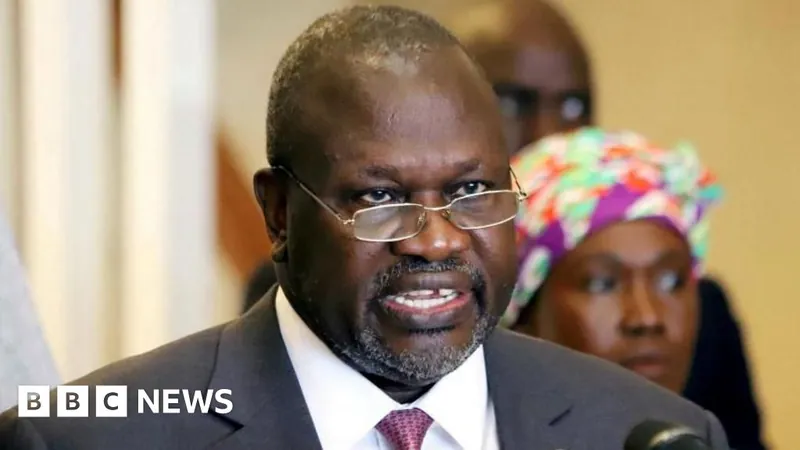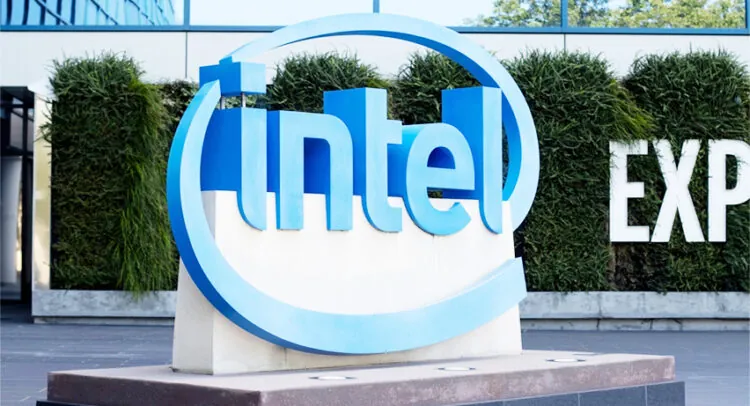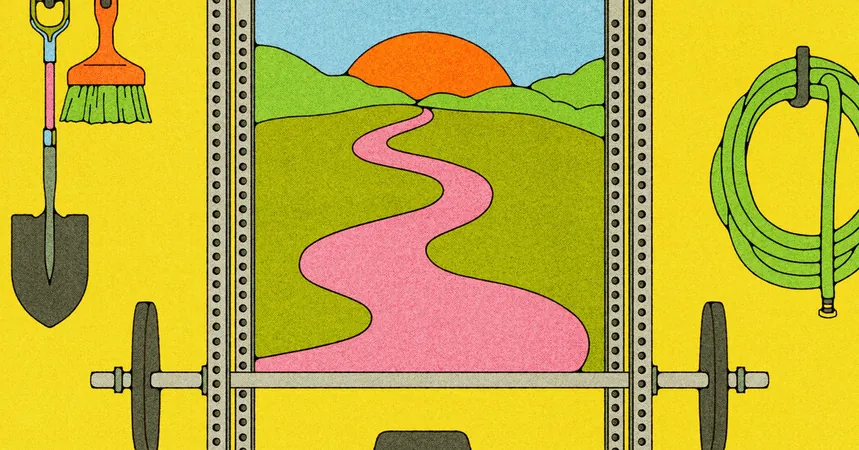
South Sudan in Turmoil: Riek Machar's Arrest Shatters 2018 Peace Deal
2025-03-27
Author: Ming
Arrest of Riek Machar
In a shocking turn of events, the recent detention of South Sudan's First Vice-President Riek Machar has plunged the nation into a new crisis, effectively collapsing the 2018 peace deal that ended the devastating five-year civil war. The Sudan People's Liberation Movement In Opposition (SPLM/IO), the political party led by Machar, has officially declared that this arrest poses a monumental threat to the fragile stability of the country.
High-Profile Detention
Late Wednesday evening, an armed convoy led by high-ranking security officials, including the defense minister, stormed Machar's residence in the capital, Juba. Bodyguards assigned to Machar were disarmed, leading to his detention alongside his wife, Angelina Teny, who also serves as the country’s interior minister.
International Response
In a series of urgent responses, the United States has publicly urged the South Sudanese authorities to release Machar. The United Nations, African Union, and neighboring countries have issued strong statements expressing their alarm over the escalating tensions. The UN Mission in South Sudan (UNMISS) has warned that unless decisive actions are taken, the nation might revert to a state of war, jeopardizing what they termed 'the hard-won gains of the past seven years'.
Eroding Relations
As the political situation deteriorates, President Salva Kiir reassured religious leaders that he has no intention of plunging the nation back into conflict. However, this statement rings hollow as tensions have been escalating between Kiir and Machar for weeks. The duo originally brokered the peace agreement in August 2018, which aimed to halt the civil war responsible for the deaths of nearly 400,000 people, but their relationship has frayed dramatically amid rising ethnic tensions and sporadic violence.
Escalating Violence
This week, reports surfaced indicating that barrel bombs, containing highly flammable substances, had been used in recent airstrikes against a rebel faction previously aligned with Machar's camp. Oyet Nathaniel Pierino, deputy leader of the SPLM/IO, voiced severe concerns about the implications of Machar's arrest, stating, 'The prospect for peace and stability in South Sudan has now been put into serious jeopardy.'
Foreign Troop Deployment
Adding to the chaos, the deployment of Ugandan troops in South Sudan, following a request from President Kiir, has raised alarms over possible violations of the UN arms embargo. Yasmin Sooka, chair of the UN Commission on Human Rights in South Sudan, highlighted that the involvement of foreign forces increases the risk to civilians and could lead to regional instability.
Public Sentiment
As fear grips the public in Juba, civil society leader Edmund Yakani warned that the potential for full-scale war looms larger than ever. 'There is a high chance of full-scale war, but it will be more deadly and more violent because of revenge motives,' he remarked.
Diplomatic Efforts
In light of these tensions, international diplomatic efforts are ramping up. The African Union and the Intergovernmental Authority on Development (IGAD) are anticipated to send high-level delegations to Juba shortly. Meanwhile, the British and US embassies have begun scaling back their diplomatic personnel and advised citizens to leave the country, while the Norwegian and German embassies have ceased operations entirely in Juba.
Calls for Resolution
As the situation progresses, both domestic and international voices are calling for a resolution to prevent further escalation. The US Bureau of African Affairs urged President Kiir to free Machar, emphasizing the need for both leaders to commit to peace.
Conclusion
With violence flaring anew in the northern town of Nasir, located in the oil-rich Upper Nile State, the specter of renewed conflict looms ominously over South Sudan. The world watches with bated breath as this troubled nation stands at a crossroads, teetering on the edge of catastrophe. Will the calls for peace prevail, or will South Sudan be condemned to relive its darkest days?



 Brasil (PT)
Brasil (PT)
 Canada (EN)
Canada (EN)
 Chile (ES)
Chile (ES)
 Česko (CS)
Česko (CS)
 대한민국 (KO)
대한민국 (KO)
 España (ES)
España (ES)
 France (FR)
France (FR)
 Hong Kong (EN)
Hong Kong (EN)
 Italia (IT)
Italia (IT)
 日本 (JA)
日本 (JA)
 Magyarország (HU)
Magyarország (HU)
 Norge (NO)
Norge (NO)
 Polska (PL)
Polska (PL)
 Schweiz (DE)
Schweiz (DE)
 Singapore (EN)
Singapore (EN)
 Sverige (SV)
Sverige (SV)
 Suomi (FI)
Suomi (FI)
 Türkiye (TR)
Türkiye (TR)
 الإمارات العربية المتحدة (AR)
الإمارات العربية المتحدة (AR)